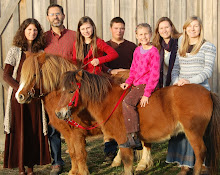
Enough people have inquired about personal devotional books for pre-schoolers that I decided to post some things we have used with our children through the years.
For the early years, before your child is able to read, these are some we enjoy:
Bible Promises for Tiny Tots
Psalms for Tiny Tots
Tiny Tots Library
My Bible Friends
My Bible First Sabbath School Lessons
We have also used some of the daily devotional books for little ones from the ABC.
(All of the above can be obtained from the Adventist Book Center online. I hope they are all still in print.)
Some wonderful audios are:
The Ladder of Life
Thy Word Creations (Wonderful illustrated scripture song blooks)
Morning Time Devotions by Janice Smith
As our children became old enough to listen and draw pictures of what they were hearing, we decided to play an audio of someone reading the New Testament, one chapter a day, and have them draw a picture of what they heard. I love this! I treasure the "Illustrated" New Testaments that our three older ones completed years ago.
I'm sure there are hundreds of other ideas for personal devotions with pre-schoolers. These are just some we have used and are using. I would welcome input from anyone on this subject. Devotions should be a never-ending project.

